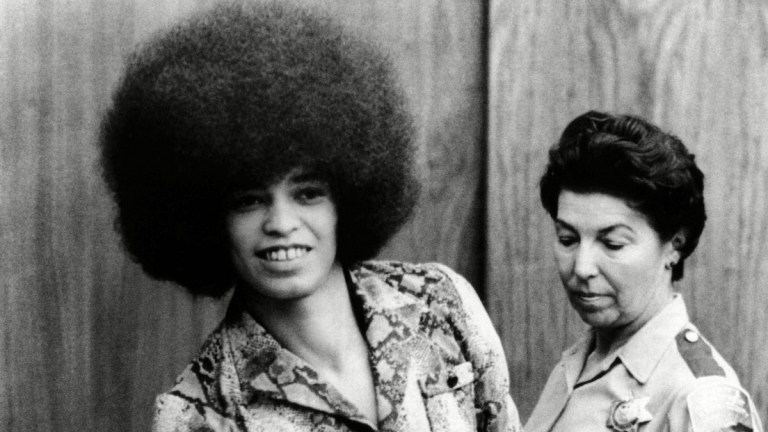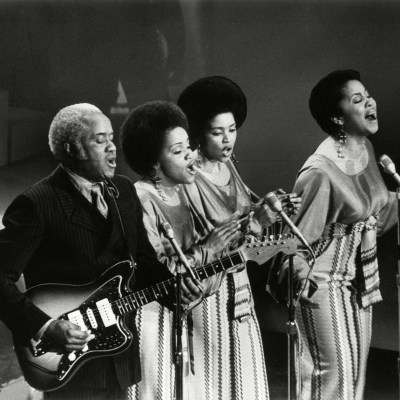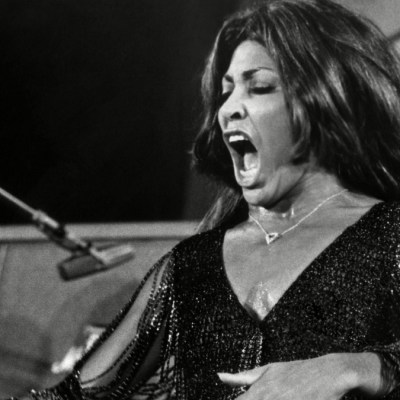When Rock and Soul Royalty Came Together for Angela Davis
Aretha Franklin, The Rolling Stones, and John Lennon aided, abetted, and celebrated prison’s most political adversary.

1971: The Year That Music Changed Everything highlights the almost psychic rapport between radicals and radical thinking musicians. One activist brought together the Queen of Soul and the top royalty of British Rock. The documentary points out how Aretha Franklin offered to post bail for Angela Davis, but the former philosophy professor also drew in support from The Rolling Stones, former Beatle John Lennon and Yoko Ono, and by extension, Bob Dylan.
Angela Davis was born to encourage free thought. The neighborhood where she grew up in Birmingham, Alabama, was called “Dynamite Hill,” because the Ku Klux Klan tried to bomb middle-class Blacks out of the area. Cops broke up interracial study groups Angela organized in high school, and she knew some of the young girls killed in the 1963 church bombing in Birmingham. She spoke French, graduated Brandeis and traveled to Europe before she became a UCLA philosophy instructor. She joined the Black Panthers, and the Che-Lumumba Club, which was the all-Black branch of the Communist Party, and was ordered terminated from her position by California’s then-governor Ronald Reagan, as 1971: The Year That Music Changed Everything points out. Her bodyguard was Jonathan Jackson, the 17-year-old younger brother of a very political prisoner.
George Jackson was accused of stealing $70 from a gas station in 1961. His court-appointed lawyer advised him to plead guilty, and Jackson was given a one year to life sentence. While in Soledad Prison, he co-founded the Marxist–Leninist Black Guerrilla Family. During a stint in solitary confinement, he studied political economy and radical theory, and became a writer. His 1970 book Soledad Brother: The Prison Letters of George Jackson, was a bestseller. In January 1970, he and two other convicts were charged with the murder of a prison guard. The trio became known as the “Soledad Brothers.”
On August 7, 1970, Jonathan Jackson entered the Marin County Civic Center, freed three San Quentin prisoners, and took five hostages, including Superior Court Judge Harold Haley. They demanded the “Soledad Brothers” be set free. Jonathan, the judge and two others were killed in the resulting shootout. The weapons which were used had been purchased in Angela Davis’ name two days before the incident. Angela became the third woman to appear on the FBI’s Ten Most Wanted list on Aug. 14. Davis fled the state.
George Jackson was gunned down by prison guards during an “escape attempt” on August 21. 1971: The Year That Music Changed Everything details the reported attempt, including how a Spanish Astra 9 mm pistol was smuggled into the prison under a wig. Many people didn’t buy the official story, including Bob Dylan who caught flak for his single “George Jackson.” Lennon pointed out Dylan wrote the song “in spite of people attacking him, not because of everybody attacking him.”
Davis was arrested in a $30-per-day, seventh floor room at a midtown Manhattan Howard Johnson MotorLodge on Oct. 13, 1970. President Nixon thanked the FBI for capturing the “dangerous terrorist.” Davis was held in prison 16 months before being granted bail. Aretha Franklin told Jet magazine, in its Dec 3, 1970 issue, she would post bail, “whether it’s $100,000, or $250,000.″ The Queen of Soul was 28 years old at the time. Davis was 26.
Franklin was a civil rights icon long before she sang at the inauguration of Barack Obama. She performed at benefits, pushed voter registration, and financially supported families of jailed black activist ministers, and other incarcerated people. She had it written into her contract during the 1960s that she would not perform to segregated audiences, as did the Beatles and Rolling Stones. Franklin toured with singer Harry Belafonte in early support of Dr. Martin Luther King Jr. Her father was Rev. C.L. Franklin, who organized the 1963 Detroit Walk to Freedom, which drew 125,000 people to the streets months before the March on Washington.
“My daddy says I don’t know what I’m doing,” Franklin told Jet. “Well, I respect him, of course, but I’m going to stick by my beliefs. Angela Davis must go free. Black people will be free. I’ve been locked up (for disturbing the peace in Detroit) and I know you got to disturb the peace when you can’t get no peace. Jail is hell to be in. I’m going to see her free if there is any justice in our courts, not because I believe in communism, but because she’s a Black woman and she wants freedom for Black people. I have the money; I got it from Black people—they’ve made me financially able to have it—and I want to use it in ways that will help our people.”
Franklin “put the bail money into escrow,” according to Rolling Stone writer Jamil Smith. “She was out of the country, which prevented her from posting Davis’ bond. It was ultimately paid by a progressive white farmer named Rodger MacAfee.” John Lennon and Yoko Ono wrote the words to the song “Angela,” while Davis was still incarcerated.
There was one aspect of fame John Lennon exploited mega-phenomenally: writing a song for breakfast, recording it for lunch, and having it out by dinner. He did it along with Paul McCartney for the Beatles’ single “Ballad of John and Yoko,” his solo 1969 single “Cold Turkey,” and 1970 hit “Instant Karma.” Lennon’s 1972 album Some Time in New York City was his headline album. He wrote songs about John Sinclair of the MC5, who was doing hard time for two joints; the Attica prison riots; and other big but misrepresented news at the time. “Angela” can be traced to a demo Lennon recorded at the St Regis Hotel in September 1971. Called “JJ,” it was about a woman who “couldn’t get laid at all.” Lennon kept the melody and rewrote the words with Ono’s apparent lyrical lead.
“We had never met her, but we admired her from afar,” Keith Richards told Brooke Mazurek in a 2017 Harper’s Bazaar interview about his and Mick Jagger’s 1972 song “Sweet Black Angel.” The song ends the “acoustic” side two of the Rolling Stones’ Exile on Main Street. While the album is most infamous for its decadent French Riviera recording sessions, “Sweet Black Angel” was recorded at Jagger’s English country manor, Stargroves.
Exile on Main Street was released on May 1, 1972. That same day, Mick and Bianca Jagger marched in support of Davis at a rally in Paris.
Angela Davis stood trial in Santa Clara County, Calif. An all-white jury acquitted her of all charges on June 4, 1972. Davis is currently Distinguished Professor Emerita at the University of California Santa Cruz. She is the author of eight books, including Are Prisons Obsolete?, which lays out the foundation for the possibility of a world without prisons.
1971: The Year Music Changed Everything is available to stream on Apple TV+ now.


